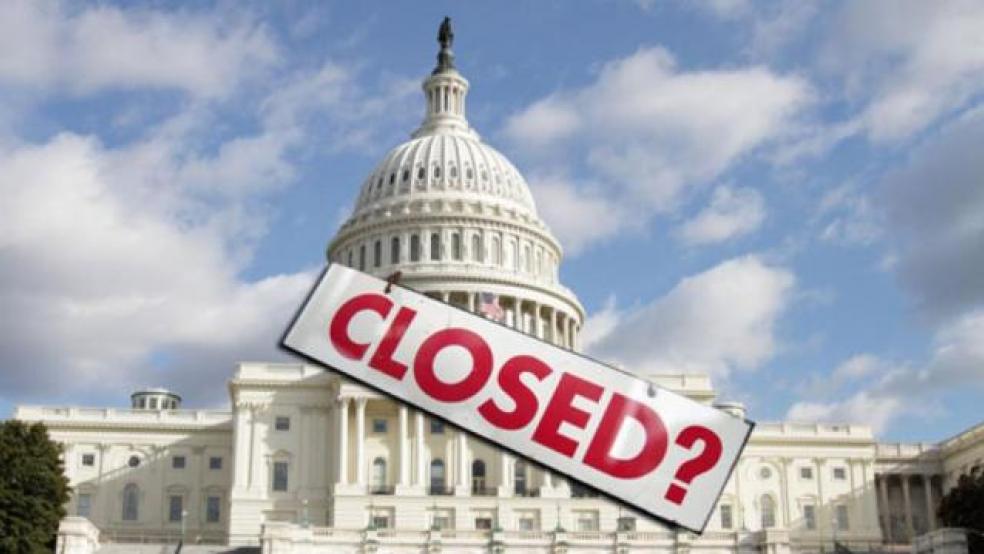Congressional leaders are reportedly moving closer to agreement on topline spending levels for fiscal year 2024, which started back in October, but that doesn’t mean they’re significantly closer to averting a potential government shutdown ahead of looming January 19 and February 2 deadlines.
The overall spending level being discussed by aides to Senate Majority Leader Chuck Schumer and House Speaker Mike Johnson represents just one crucial step toward avoiding a shutdown. One idea reportedly being considered for 2024 funding is to keep spending at current levels but not through a continuing resolution, or CR. “This would essentially function as a year-long CR, but would be treated as if it’s a new appropriation,” Punchbowl News reported.
That approach would avoid the automatic spending cuts that would otherwise kick in under a CR, as required by last year’s Fiscal Responsibility Act. The Congressional Budget Office estimated Thursday that a year-long continuing resolution could result in significant spending cuts. (See more on the CBO analysis below.)
Punchbowl notes that Democrats and Senate Republicans have warned against keeping spending levels flat, meaning that the deal being considered may not fly. Beyond that, whatever the topline spending level is, Congress would still need to pass either a short-term CR or full-year funding bills to prevent agencies and programs from shutting down.
Further complicating the outlook for the coming weeks: House Republicans are now looking to tie border policy changes to the government funding deadlines, with some saying this week they’d be willing to shut down the government to try to secure more restrictive border measures along the lines they passed in their H.R. 2 bill in May.
The Biden administration and Senate negotiators, meanwhile, continue to try to reach a bipartisan deal on border policy that would unfreeze a $110 billion aid package for Ukraine, Israel and Taiwan. “If you’re serious about getting results, you have to be working across the aisle,” Sen. Chris Murphy of Connecticut, the lead Senate Democratic negotiator, told reporters Wednesday, adding: “my impression is that Speaker Johnson has not spent one minute trying to work across the aisle to get a deal on immigration. We are trying to work across the aisle in the Senate to get a bipartisan deal.”
Sen. James Lankford, who is leading the Senate negotiations for Republicans, similarly told reporters Wednesday that Republicans must contend with the reality that a push for more restrictive immigrations provisions would be blocked by Democrats. “We still have to be able to do something. We can’t just do nothing and say, ‘We can’t get everything in H.R. 2 so we can do nothing.’”
The bottom line: Lawmakers have just a couple of weeks to go before the first shutdown deadline and plenty of issues left to resolve.





